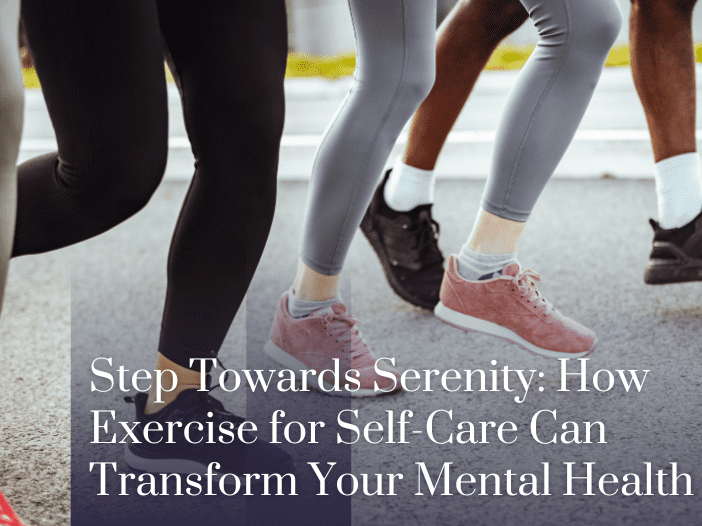
In the hustle and bustle of our daily lives, we often forget to prioritize self-care. But what if we told you that a simple activity like exercise could have a profound positive effect on your mental health? Yes, you heard it right! The concept of using exercise for self-care is not just beneficial for your physical health, but it also plays a crucial role in enhancing your mental well-being.
The Importance of Self-Care and Exercise
As professionals—be it social workers, therapists, psychiatrists, or doctors—we all understand the importance of maintaining a healthy mind and body, both personally and professionally. However, incorporating regular physical activity into our busy schedule can be challenging. Here’s where the idea of exercise as a form of self-care comes into play.
The Recommended Amount and Benefits of Exercise
The American Heart Association recommends at least 150 minutes of moderate exercise or 75 minutes of vigorous activity per week. While this might sound like a lot, it breaks down to just 30 minutes of exercise five times a week. And these 30 minutes don’t have to be spent running marathons or climbing mountains; even activities as simple as walking can have an immediate positive effect that can last several hours, significantly improving your mood and reducing stress.
Regular exercise is also known to boost self-confidence, improve sleep, increase relaxation, and reduce feelings of depression and anxiety. It’s a powerful tool for enhancing mental health and well-being, and it’s accessible to everyone, regardless of age or fitness level. In addition, regular exercise can help reverse early signs of diabetes, fend of heart disease and lower blood pressure.
How Exercise Improves Mental Health
But how does this work? Regular physical activity increases the production of endorphins (brain’s feel-good neurotransmitters), as well as pushing oxygen throughout our bodies. It also acts as a natural anti-anxiety treatment, helps manage symptoms of depression and anxiety. Furthermore, the benefits of such activity include improved sleep, increased interest in sex, our capacity to think, stress relief, improvement in mood, strengthens muscles, and better overall cognitive function.
Incorporating Exercise Into Your Routine
Integrating a regular exercise routine into your lifestyle can seem daunting at first, especially with a busy professional schedule. But remember, it’s about taking small steps towards a healthier lifestyle. You don’t have to make huge changes overnight. Start by incorporating short breaks for a walk during your workday, a few minutes of stretching in the morning, or even some light yoga before bed.
As you gradually make these small changes, you’ll start to notice the difference in your mood and energy levels. You might find that you’re sleeping better, feeling less stressed, and even enjoying your work more. This is the power of regular exercise—it’s a simple yet effective way to improve both your physical and mental health.
The Connection Between Physical and Mental Health
It’s time we look beyond the physical and acknowledge the mental benefits of regular exercise. The link between physical and mental health is undeniable. By taking care of our bodies, we’re also taking care of our minds. Regular physical activity can boost your mood, reduce stress and anxiety, improve memory, and help you sleep better. In other words, exercise is as much a mental activity as it is a physical one.
So, don’t let your busy schedule come in the way of your self-care. Embrace the concept of exercise for self-care and see the transformation in your mental health. Think of self-care as a way of RE-connecting with yourself and others, fostering relationships, and nurturing your soul. Remember, your mental health is just as important as your physical health and it’s time we start giving it the attention it deserves.
Locall Motion: Supporting the Community’s Mental Health
Locall Motion supports community members, social workers, and therapists, in the Chippewa Valley and the greater Eau Claire, WI area with an active, non-traditional intervention to support recovery and healing through walking and talking. Contact Locall Motion today to support your participants!
Don’t let your busy schedule come in the way of your self-care. Embrace the concept of exercise for self-care and see the transformation in your mental health.


